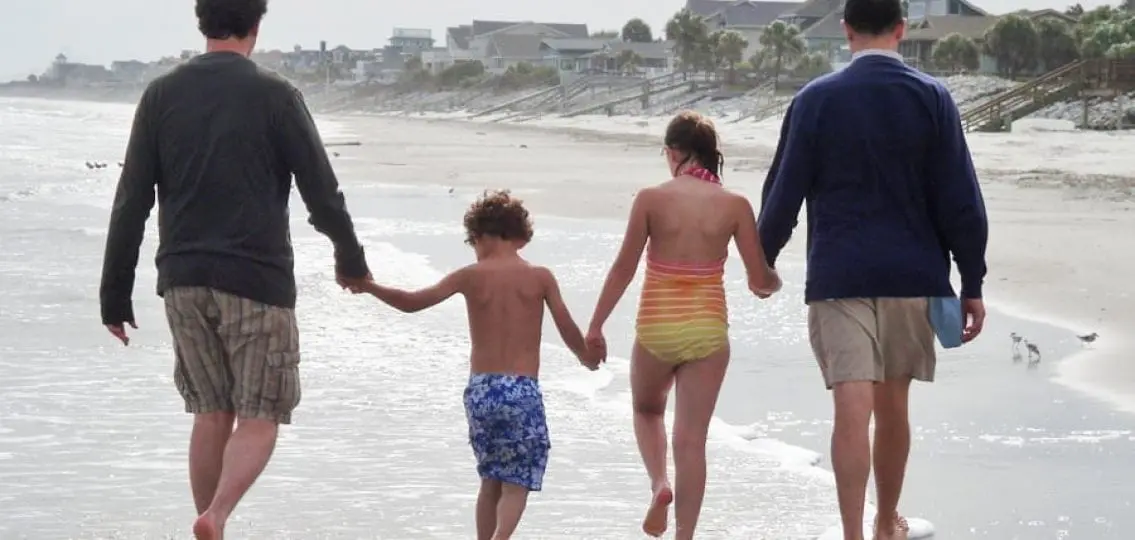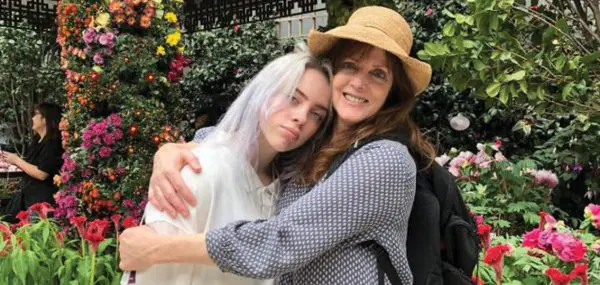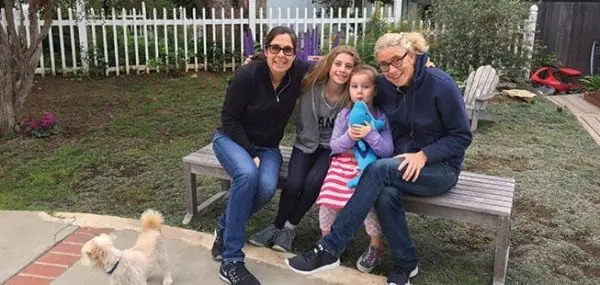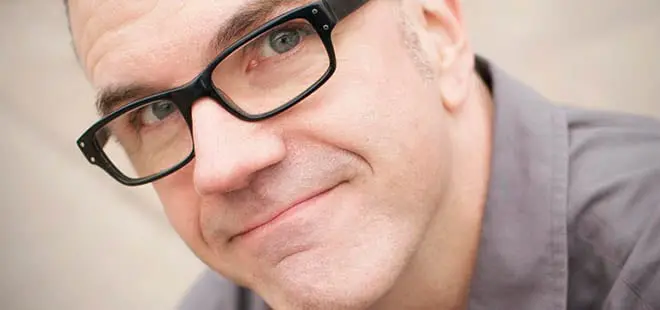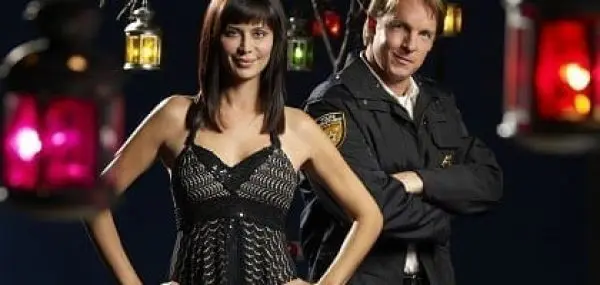William Lucas Walker is an Emmy Award-winning writer and producer whose television credits include Frasier, Will & Grace, and Roseanne. Bill and his husband, Kelly, are the parents of Elizabeth and James, born in 2001 and 2005.
Interview with William Lucas Walker
Q: What was it like when your daughter entered into her tween years?
Walker: Elizabeth has always been outspoken, strong-willed, and very sure of herself. But when she started sixth grade, we began to notice her confidence becoming shakier, with a heightened self-consciousness and concern with what others thought. When Elizabeth was young, she would go her own way—whether people joined or not. But starting about midway through sixth grade, the opinions of others—well, anyone who wasn’t us—began to matter much more. Texting and social media were becoming the new currency, and she felt left out because we stuck to our guns about not getting her a phone or access to social media (most of which require a minimum age of 13) until she finished sixth grade.
Q: How did you deal with that shift?
Walker: We were conflicted about letting her have an Instagram account. We had researched it, and realized that, as with YouTube, there was no effective way to filter out inappropriate content. When we finally allowed Instagram, it was within the parameters of a contract with guidelines specified for appropriate use. She had also signed a contract when she got her cellphone the year before. That contract also outlined specific rules—no YouTube, bathing suit selfies, cursing, or disrespectful language—as well as our rights as parents to check texts at any time and talk to her friends’ parents about what they see on their kids’ phones. Elizabeth cursed early on in a text, and we took her phone away for two weeks. She’s been really good about not letting that happen again.
Q: Are you strict about other things?
Walker: We struggle sometimes with TV content, too. From the beginning we used the parental controls on our TV, so they’ve always been used to that. They’ve never been able to just flip on the TV whenever they want and watch whatever they want. Still, now that she’s older, she doesn’t understand why we won’t let her watch things with explicit adult content. Like Orange is the New Black. She argues: “But my friend watches it!” I told Elizabeth that the show’s creator doesn’t even allow her own kids to watch it. I’ve also tried to explain that once you’ve seen something too shocking, or sexual, or violent you can never unsee it. She rolls her eyes; we try to stick to our guns. Of course, we reevaluate and relax as she gets older—we occasionally allow certain R-rated things now. But overall, at 13, she thinks we’re overprotective.
Q: Did you always want to have kids?
Walker: I wanted to be a dad my whole life. I didn’t come out until I was 32, and I didn’t think I could ever be a dad. It wasn’t a paradigm, not on the radar. A gay man who wanted to have kids? I might as well have been from Mars. Eventually, I met many other gay men who felt the way I did.
Q: How did you and your husband figure out your roles at home?
Walker: Kelly and I both grew up in tight families and felt we’d benefitted enormously from having one parent at home; we wanted that for our kids as well. We mutually chose me to be what is now referred to as “the primary caregiver.” I do most of the doctor’s appointments, school events, bake sales, Halloween costumes, school projects—those kinds of hands-on things.
Before kids, I’d experienced lots of professional highs in my career, which was good because I knew the limits of work rewards. It was great to write a TV show that makes people laugh, but it was nothing compared to my children’s laughter or their hugs or taking care of them or feeding them or watching them grow and learn and become wonderful, amazing human beings. That mattered a lot more to me than a fat paycheck or awards. And while it’s my husband who holds down the steady, 9 to 5 corporate job, he is by no means uninvolved. He is an amazing, hands-on father who enriches our children’s lives every day with the same loving, kind and patient nature that made me fall in love with him years ago.
Q: Are you able to find a support group as a stay-at-home dad in a gay marriage?
Walker: I was lucky. The Pop Luck Club is a group with over 250 dads and 650 kids. Every month, we have a potluck meeting where we talk to “prospective” dads about how to become fathers through surrogacy, adoption, and fostering. Because of the Pop Luck Club (www.popluckclub.org), our kids have always grown up knowing other kids with gay parents. But, as you know, parents mostly connect with other parents through their kids, so most of our friends are straight parents.
Q: Do you ever worry that your daughter is missing out on not having a female parent?
Walker: We’ve always tried to fill Elizabeth’s life with as many wonderful women as we can—lots of aunts and grandmothers. But especially Heather, the surrogate who carried Elizabeth, and “Miss Andrea,” both children’s egg donor. Miss Andrea took Elizabeth shopping for her first bra, and we’ve stayed in close touch with all three women. Whenever we’ve asked Elizabeth if she feels like she missed out on having a mom, she has always looked at us like that was the strangest question and says no—that we’re her parents. [At this point Elizabeth chimes in to the interview: “I think two dads is better than having a mom and a dad; it’s just a lot more fun.”] In addition, we chose a female pediatrician, female teachers, an all-girl summer camp, and tried to fill her life with great female role models. It seems to have worked. She will tell anyone who asks that girls rule.
